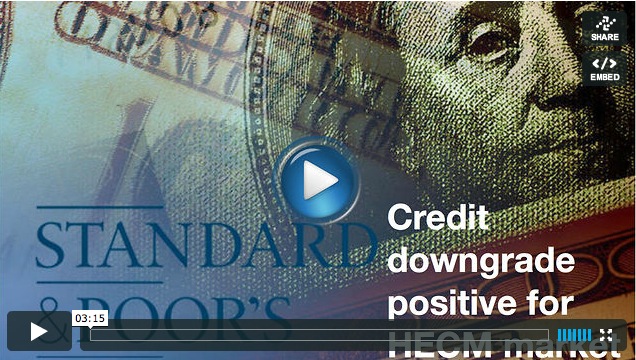In a blockbuster announcement, two of the top leadership groups in the reverse mortgage industry have disclosed their intention to join forces effective immediately. Security One Lending, #6 in national market share among active lenders, will combine with Premier Senior Home Equity, a new company that has been aggressively rolling-up industry brokers excited about the value-added benefit and the wealth realization plan being offered.
Torrey Larsen, who will continue to lead Security One Lending as President/CEO, says ”the continued execution of our strategic plan, together with the addition of Premier, will position us as one of the top 5 reverse mortgage businesses in the country”. Because of Premier’s strong leadership team, Mr. Larsen can focus on continuing to build the Security One brand which recently signed Pat Boone as national spokesman. Additionally, he will concentrate upon the development of new products for the reverse mortgage space, improving the origination experience through both technology and fulfillment enhancements, and immediately applying for GNMA Issuance approval. Mr. Larsen believes “this strategic play will enable Security One Lending to increase its bandwidth, relative to both its capital structure and management team, so that we can fully leverage our ability to capture production in a fragmented market. Industry consolidation will continue throughout 2011 and 2012, in our opinion.”
Bart Johnson, former President of Financial Freedom and Co-Chair of NRMLA, and long-time industry entrepreneur Tony Garcia will lead the Premier Senior Home Equity team. After its launch several months ago, Premier enjoyed immediate traction with broker firms which committed to convert to member branches. Tony Garcia observed that: “The combination with S1L will significantly simplify the usual lengthy and expensive approval and licensing process, and will allow us to scale Security One’s platforms rather than building our own.” Bart Johnson also identifies this move as a value maker: “We see a huge advantage in foregoing administrative tasks to accelerate market consolidation now in order to fill the vacuum created by the exits of Bank of America and Wells Fargo.” As a result, the company will aggressively recruit high performing retail broker branches. The combined firm expects a solid position among the top 5 reverse mortgage originator within six months, and to seriously contend for industry leadership.
JAM Equity Partners, a long-time reverse mortgage industry investor, will maintain its ownership interest in Security One Lending. Jim Benson (former President & CEO of John Hancock Life Insurance Company) and Alan Botsford (Parthenon Capital, among others), manage a financial services private equity firm which recently invested in Premier. Both investment firms agree that current industry conditions create a unique investment opportunity. According to Jim Benson, “We understand that it made sense for several large financial institutions to shed non-core reverse mortgage businesses in response to financial pressure. That just encourages us that the market is even more exciting for companies such as ours that recognize reverse mortgage as a primary business”. Alan Botsford confirmed the compatibility of Premier Senior Home Equity with Security One Lending: “We sought an entrepreneurial partner with a strong operating platform, knowledge and experience in both positive and negative economic environments, and above reproach regulatory compliance. In addition they had to be good people with whom to do business. Security One Lending fit the bill perfectly”. All believe that the two leadership teams will combine seamlessly to build a valuable and socially significant enterprise. Both firms will now share ownership in the combined businesses and will brand it as Security One Lending because of the brand’s already strong position in the marketplace.
Security One Lending is currently licensed in 30 states, and plans to be licensed in 40 states by year end. The firm has both a diversified product mix (reverse and forward lending) and has created a variety of distribution channels (retail, consumer direct, and wholesale) to support its lending efforts. The company is a FNMA approved Seller/Servicer based in San Diego, CA. For more information on Security One Lending call toll free (866) 480-4715. To join the Premier team call Tony Garcia (760) 476-3111 or Bart Johnson (949) 336-6285.





